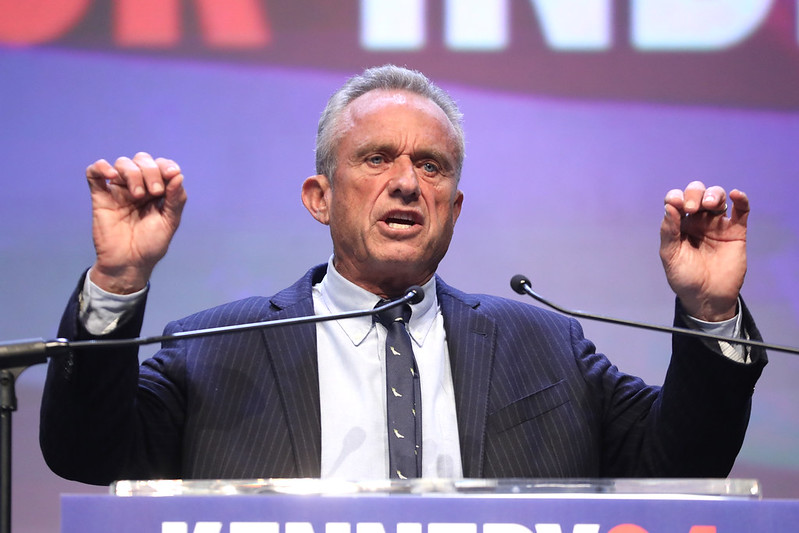Top Stories
Robert F. Kennedy Jr. Cuts $500 Million from mRNA Vaccine Development

Robert F. Kennedy Jr., U.S. Secretary of Health and Human Services, has announced a significant shift in the government’s approach to vaccine development by cutting nearly $500 million from mRNA vaccine initiatives. This decision, revealed on August 5, 2025, follows a comprehensive review of mRNA-related investments initiated during the COVID-19 pandemic. Kennedy stated that the funding will be redirected toward developing “safer, broader vaccine strategies” that are less susceptible to viral mutations.
In a statement regarding the funding cuts, Kennedy claimed that current mRNA vaccines “fail to protect effectively against upper respiratory infections like COVID and flu.” He emphasized a focus on alternative vaccine platforms, which he believes will offer better protection. This announcement has raised concerns among public health experts, who argue that mRNA technology has proven effective in reducing severe illness and hospitalizations during the pandemic.
Kennedy’s decision marks a significant departure from the previous administration’s support for mRNA vaccines, which were hailed as groundbreaking during Operation Warp Speed. Under this initiative, the rapid development of mRNA vaccines by companies such as Pfizer-BioNTech and Moderna played a crucial role in combating the COVID-19 crisis. Public health authorities, including the Centers for Disease Control and Prevention (CDC), continue to advocate for these vaccines, citing their effectiveness in preventing severe disease.
Expert Opinions and Scientific Evidence
Critics of Kennedy’s stance are urging the public to consider the extensive scientific support for mRNA vaccines. According to a 2023 publication in the International Journal of Molecular Sciences, vaccinations remain one of the most effective methods for preventing infectious diseases. The authors highlighted that successful vaccination campaigns have eradicated diseases like smallpox and polio, underscoring the importance of maintaining robust vaccination programs.
The American Academy of Pediatrics has also provided resources to help the public understand how mRNA vaccines work. These vaccines utilize messenger RNA to instruct cells on producing specific proteins from the virus, which prompts an immune response without introducing live virus into the body. This technology has been in research for over 15 years, reinforcing its safety and efficacy, particularly as utilized during the COVID-19 pandemic.
Dr. Michael Osterholm, an epidemiologist and director of the Center for Infectious Disease Research and Policy at the University of Minnesota, emphasized that mRNA vaccines have saved millions of lives during the pandemic. He criticized Kennedy’s approach and pointed out that the vaccines provide substantial protection against serious illness, even as variants of the virus continue to emerge.
The Broader Implications
Kennedy’s announcement has sparked discussions about public trust in vaccines and the potential consequences of misinformation. His long-standing criticism of vaccines and alignment with anti-vaccine sentiments have raised alarms among health professionals. Experts argue that his actions could further erode public confidence in vaccination, particularly at a time when respiratory illnesses are on the rise.
Recent data from the CDC indicates that COVID-19 cases are surging again, with increased hospitalizations reported. Experts warn that undermining confidence in vaccines could have dire public health implications, especially for vulnerable populations who rely on vaccines for protection against severe diseases.
Public health advocates are urging individuals to remain informed and consider the overwhelming evidence supporting the safety and efficacy of mRNA vaccines. As the nation faces ongoing challenges from respiratory viruses, they emphasize the importance of vaccination as a key tool in safeguarding health.
In summary, Robert F. Kennedy Jr.’s decision to cut funding for mRNA vaccine development represents a notable shift in public health policy. As experts continue to advocate for vaccination based on robust scientific evidence, the implications of this decision will likely resonate throughout the healthcare landscape in the coming months.
-

 Entertainment3 months ago
Entertainment3 months agoAnn Ming Reflects on ITV’s ‘I Fought the Law’ Drama
-

 Entertainment4 months ago
Entertainment4 months agoKate Garraway Sells £2 Million Home Amid Financial Struggles
-

 Health3 months ago
Health3 months agoKatie Price Faces New Health Concerns After Cancer Symptoms Resurface
-

 Entertainment3 weeks ago
Entertainment3 weeks agoCoronation Street Fans React as Todd Faces Heartbreaking Choice
-

 Entertainment3 months ago
Entertainment3 months agoCoronation Street’s Carl Webster Faces Trouble with New Affairs
-

 Entertainment3 months ago
Entertainment3 months agoWhere is Tinder Swindler Simon Leviev? Latest Updates Revealed
-

 World3 weeks ago
World3 weeks agoBailey Announces Heartbreaking Split from Rebecca After Reunion
-

 Entertainment4 months ago
Entertainment4 months agoMarkiplier Addresses AI Controversy During Livestream Response
-

 Science2 months ago
Science2 months agoBrian Cox Addresses Claims of Alien Probe in 3I/ATLAS Discovery
-

 Health5 months ago
Health5 months agoCarol Vorderman Reflects on Health Scare and Family Support
-

 Entertainment4 months ago
Entertainment4 months agoKim Cattrall Posts Cryptic Message After HBO’s Sequel Cancellation
-

 Entertainment3 months ago
Entertainment3 months agoOlivia Attwood Opens Up About Fallout with Former Best Friend




















